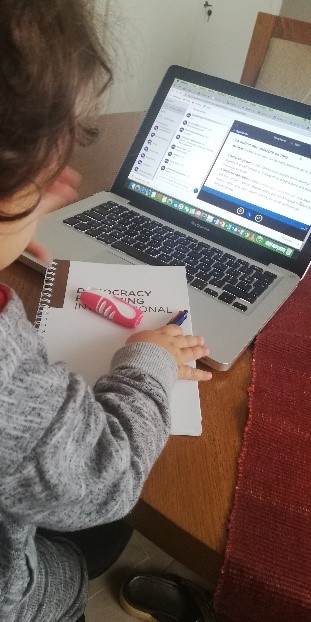We have been working with local authorities and civil society groups in Tunisia, strengthening the country’s democratic transformation and supporting the implementation of the Local Government Code, which frames how municipalities can operate. We have been able to lay the groundwork for collaboration between civil society groups and local governments through workshops, publications and several reports monitoring the implementation of the constitution.
This year, a notable focus of our work has been working with four civil society groups from the municipalities of Ariana and Hencha to help improve how they manage projects and support their work in partnership with their local municipalities.
This work was to start on 12 March 2020, continuing throughout March and April. Little did we know that the whole country would go into a national lockdown after our first day, on 13 March. We had to think fast and adapt to the situation as there was no crisis plan for the four civil society groups or their municipal partners.
“Lockdown or not, Ramadan or not, the work continues. It was a great experience to collaborate and work online with DRI,” said participant Aicha Karafi Hosni.
With a little coordination between our team and our partners, we set up a virtual training room via visio.tn, a Tunisian platform, complete with separate workshop spaces for every civil society organisation to work on their strategy and brainstorm on how to deal with the current situation with the local authorities.
While the main pillars for the training were kept, on drafting project proposals, choosing the right work plan, identifying indicators, and other elements, we also had to improvise with new themes, such as how to respond quickly to a crisis and widening the risk assessment matrix that needs to go with every project.
“The training is vital for anyone who claims to want to make a change, even small. It was an intense and deep reflection on the purpose of citizen engagement, on what we want to do, on what we can do and especially on what we cannot do,” said Elyssa Amara. “A real intellectual confinement, in addition to the physical confinement, which taught us to be very careful in the choice of our project and very precise in the way making it alive.”
Thankfully, despite the physical limitations, participants easily joined and took part in the workshops and plan to keep working online to finalize and present their projects.
This activity took place as part of the third phase of the “Support to the Constitution Implementation in Tunisia” project, funded and supported by the German Federal Foreign Office.











